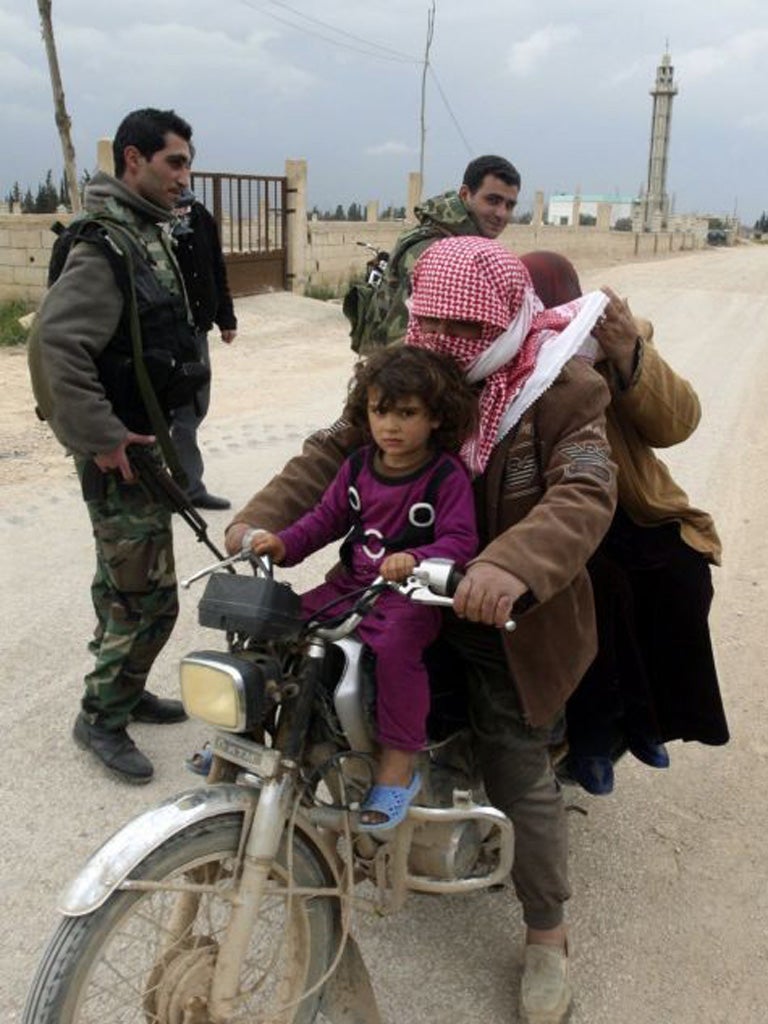Robert Fisk: On Lebanon's border, silent Syrians are flocking to an unknown future
Our writer visits a village where families flee Assad's wrath


Your support helps us to tell the story
From reproductive rights to climate change to Big Tech, The Independent is on the ground when the story is developing. Whether it's investigating the financials of Elon Musk's pro-Trump PAC or producing our latest documentary, 'The A Word', which shines a light on the American women fighting for reproductive rights, we know how important it is to parse out the facts from the messaging.
At such a critical moment in US history, we need reporters on the ground. Your donation allows us to keep sending journalists to speak to both sides of the story.
The Independent is trusted by Americans across the entire political spectrum. And unlike many other quality news outlets, we choose not to lock Americans out of our reporting and analysis with paywalls. We believe quality journalism should be available to everyone, paid for by those who can afford it.
Your support makes all the difference.A poster of the Hezbollah leader, Hassan Nasrallah, and the Syrian President, Bashar al-Assad, smiling at each other hangs over the highway to Al-Qaa. But you know this is no ordinary Lebanese village when you arrive at the custom station.
A truckload of soldiers (big, burly guys in heavy, black flak jackets, with Kalashnikovs), pulls up and watches silently as flocks of Syrian refugees, fleeing the bloody government crackdown in their nation, plead to enter Lebanon. Lebanese Red Cross ambulances – Syrian wounded lying inside – are waved through. But for the sad, pathetic creatures walking down the road with neither bags nor documents, there is no easy passage.
To enter Lebanon, a Syrian must hold his papers and documents showing his father's name. "I can't get them – they are on the other side of the border, please," says a thin man in a long black coat too big for him, a small boy at his side. "No – back," says the security man. "I told you, back." He pushes the man and the boy, not roughly but with determination, away from the custom house.
Many come by yellow and white Syrian taxis and, when they get out, they run to the custom house for a stamp as if their lives depend on it. A few trucks turn up, the drivers asking for a man who is known to have wasta ("influence") and supposedly works here. "He has left," the Lebanese security man says coldly.
It's a frightening little place, Al-Qaa, just down the road from the houses which the Syrian army fired into four days ago in an attempt to root out Syrian rebels thought to be sheltering in the area. Everyone looks like – or is – an intelligence officer. Even the Syrian "civilians" could be from the Damascus Mukhabarat. No one talks to each other.
The trucks are searched with some vigour in both directions. Only three days ago, the Lebanese army supposedly stopped two lorryloads of guns heading for the border, though the source – Hezbollah's television news – suggests that the report should be taken with a grain of salt. All is not quite as it seems in Al-Qaa. A few hundred metres from the custom house are a cluster of homes and a rock and mud path that runs low behind an olive grove. A woman and her husband, who live beside it, welcome us cautiously and ask us not to print even their first names.
"At night, they all come this way, along the path," she says. "Nobody stops them. They are [Syrian] opposition moving into Lebanon and Syrian refugees. Whoever they are, we don't ask and we just say 'God help them'. Many civilians are Christians running away." Al-Qaa is a Christian village.
The mud-covered path beside the olive grove involves climbs of two feet of rock. Broken shoes and boots with their soles ripped off and filthy, torn socks line the path. These desperate people walk into Lebanon at night and cannot see and must fall on the unseen rocks and slither in the mud. A silent people, armed or not, making their way into an unknown future.
Join our commenting forum
Join thought-provoking conversations, follow other Independent readers and see their replies
Comments